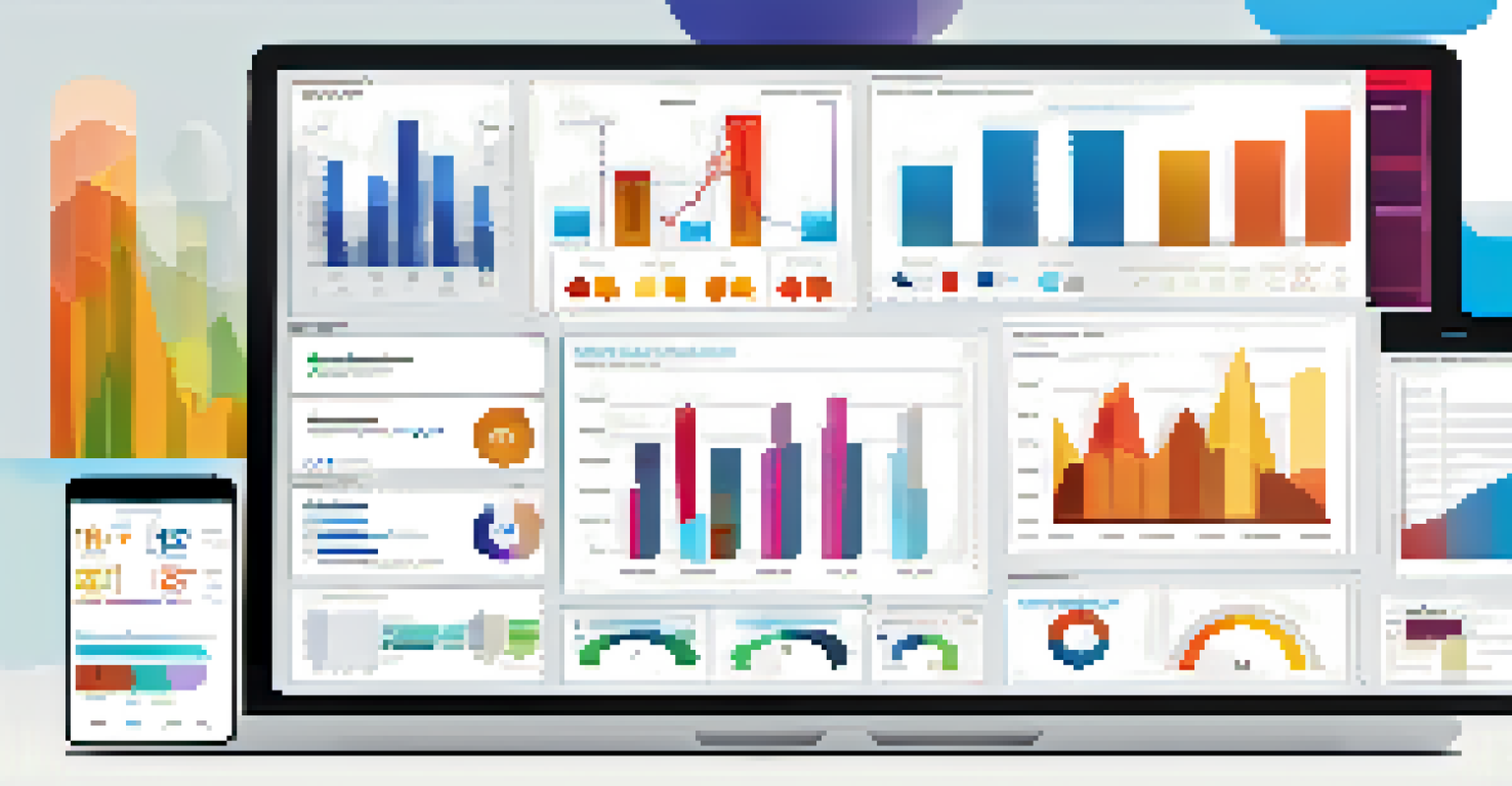Enhancing Supplier Relationships Through Digital Technologies

Understanding the Importance of Supplier Relationships
Supplier relationships are vital for any business, acting as the backbone of your supply chain. A strong partnership can lead to better prices, improved quality, and more reliable service. When you invest in these relationships, you’re not just buying products or services; you’re creating an ecosystem where both parties can thrive.
The strength of the team is each individual member. The strength of each member is the team.
Think of it like a dance; both partners must move in harmony to create something beautiful. Just like in dance, missteps can lead to misunderstandings and frustration. This is where digital technologies come in, helping to smooth out those steps and keep both partners in sync.
By leveraging digital tools, businesses can enhance communication, track performance, and ultimately build trust with their suppliers. This foundation of trust leads to more fruitful collaborations and innovative solutions that benefit everyone involved.
How Digital Technologies Improve Communication
Effective communication is the cornerstone of any strong relationship, and digital technologies can significantly enhance this aspect. Tools like instant messaging, video conferencing, and collaborative platforms allow for real-time communication, making it easier to address issues as they arise. Imagine being able to resolve a supply chain hiccup with a quick video call instead of a series of back-and-forth emails.

These technologies also provide a centralized platform for sharing important documents and updates. When both parties have access to the same information, misunderstandings can be minimized, and everyone is on the same page. This transparency fosters a culture of openness and accountability.
Supplier Relationships Matter
Strong supplier relationships lead to better pricing, quality, and reliability, creating a mutually beneficial ecosystem.
Moreover, analytics tools enable businesses to gather insights from communication patterns. By understanding which channels work best, companies can tailor their approaches to suit their suppliers’ preferences, making interactions more effective and enjoyable.
Leveraging Data for Better Decision-Making
In the age of information, data is a powerful tool that can enhance decision-making processes. By analyzing data from various sources, businesses can identify trends, forecast demand, and make informed choices about their suppliers. This is akin to having a map that guides you through a complex maze; you can navigate challenges with confidence.
In the midst of chaos, there is also opportunity.
Digital technologies provide analytical tools that help in collecting and interpreting this data efficiently. From supply chain analytics to performance metrics, these tools give businesses a clearer picture of their supplier landscape. For instance, knowing which suppliers consistently meet deadlines can help you streamline your operations and reduce bottlenecks.
Using data effectively not only improves your own decision-making but also empowers suppliers. Sharing insights with them can lead to collaborative strategies that enhance efficiency and create mutual benefits.
Streamlining Processes with Automation
Automation is a game-changer when it comes to managing supplier relationships. By automating repetitive tasks like order processing and invoicing, businesses can free up valuable time and resources. Imagine the relief of not having to manually track every order; that’s where automation steps in to save the day.
Digital tools can handle these tasks swiftly and accurately, minimizing human error and speeding up the overall process. This efficiency not only enhances your operational workflow but also improves your relationship with suppliers, who appreciate timely and accurate transactions.
Digital Tools Enhance Communication
Using digital technologies facilitates real-time communication and transparency, minimizing misunderstandings in supplier interactions.
Furthermore, automation allows for better tracking and reporting. Suppliers can receive instant notifications about order statuses, leading to improved transparency and trust in the partnership.
Building Trust Through Transparency
Trust is essential in any business relationship, and digital technologies can foster this trust through transparency. By sharing relevant data, performance metrics, and project updates, both parties can stay informed and engaged. It’s like pulling back the curtain; when everyone can see what’s happening, it builds confidence.
For instance, using cloud-based platforms allows both businesses and suppliers to access real-time information about inventory levels, deliveries, and payment statuses. This level of visibility can significantly reduce misunderstandings and foster a collaborative spirit.
Moreover, when suppliers feel included in the process, they are more likely to provide valuable feedback and innovative solutions. This partnership mentality can lead to long-lasting relationships that drive success for both parties.
Enhancing Collaboration with Digital Solutions
Collaboration is at the heart of effective supplier relationships, and digital solutions can enhance this aspect significantly. Tools like shared project management platforms and collaborative design software allow teams from both sides to work together seamlessly. It’s like having a shared workspace where ideas can flow freely and creativity can flourish.
These technologies not only facilitate communication but also encourage innovation. When suppliers and businesses collaborate on projects, they can leverage each other’s strengths to create better products or services. For example, co-developing a new product can yield insights that neither party would have discovered alone.
Data Drives Informed Decisions
Leveraging data analytics empowers businesses to make informed choices and collaborate effectively with suppliers for mutual success.
Additionally, collaboration tools often come with features that track progress and milestones. This accountability helps ensure that everyone is aligned and working toward the same goals, enriching the partnership further.
The Future of Supplier Relationship Management
As digital technologies continue to evolve, so too will the landscape of supplier relationship management. Emerging trends, like artificial intelligence and machine learning, are set to transform how businesses interact with their suppliers. Imagine having smart algorithms that predict supplier performance or suggest optimal order quantities; that’s the future we’re heading toward.
These advancements will enable companies to be more proactive in their relationships, anticipating needs and addressing issues before they escalate. The focus will shift from reactive problem-solving to strategic planning, strengthening partnerships along the way.

In this dynamic environment, businesses that embrace these digital tools will not only enhance their supplier relationships but also gain a competitive edge in the market. The ability to adapt and innovate will be paramount in navigating the future of supply chains.